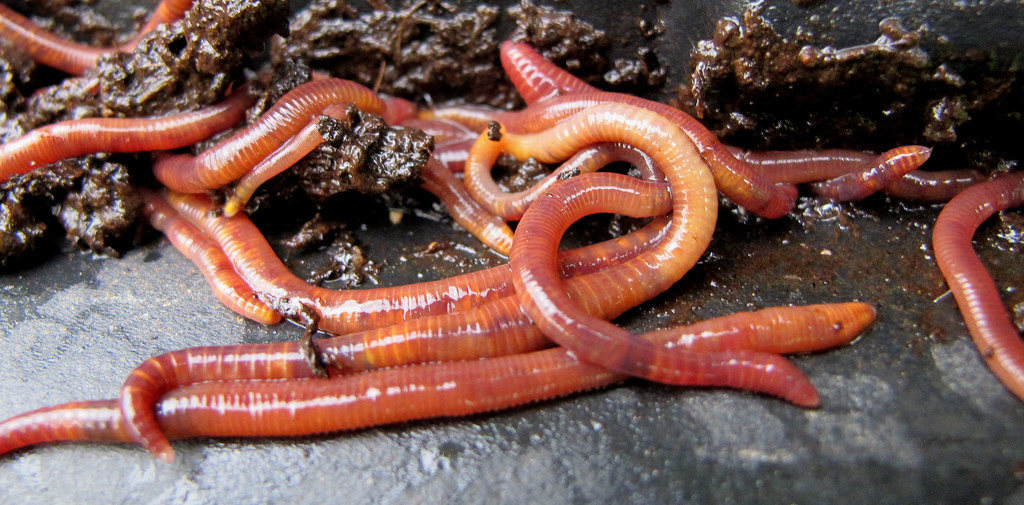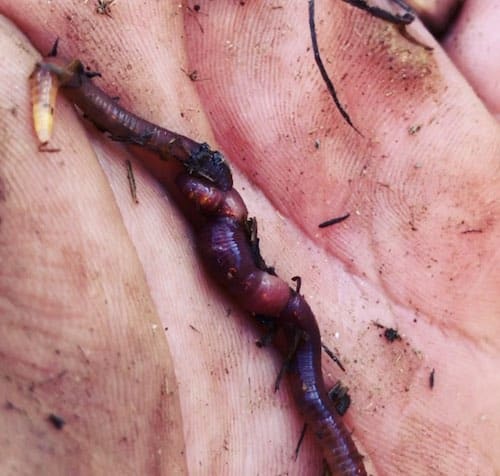Lake Hickory Bait: Your Trusted Store for Top-Quality Fishing Gear
Lake Hickory Bait: Your Trusted Store for Top-Quality Fishing Gear
Blog Article
Red Wigglers 101: Every Little Thing You Required to Know for Thriving Gardens
Red wigglers, or Eisenia fetida, play a crucial function in lasting horticulture practices, functioning as effective decomposers that transform natural waste into beneficial vermicompost. Understanding their habitat, dietary preferences, and the myriad advantages they offer can transform your gardening approach (Red Wiggler Express). As these worms grow in specific conditions, their care and management are necessary for optimizing their payments to soil health. The question continues to be: what actions can you take to harness the complete possibility of these impressive microorganisms in your own garden?
Recognizing Red Wigglers

Red wigglers flourish in settings rich in natural material and moisture. Red Wiggler Express. They have an one-of-a-kind gastrointestinal system that allows them to process food scraps swiftly, eliminating spreadings that are packed with essential nutrients such as nitrogen, phosphorus, and potassium. These castings boost soil structure, improve water retention, and foster valuable microbial activity, every one of which add to robust plant health and wellness
Additionally, red wigglers can survive in diverse conditions, making them adaptable to different horticulture techniques, including indoor and outside composting systems. Their ability to take in big amounts of natural waste day-to-day settings them as useful allies for both home garden enthusiasts and business farmers. By incorporating red wigglers right into horticulture initiatives, one can significantly boost dirt fertility and assistance lasting horticulture practices.
Perfect Habitat for Red Wigglers
Developing an optimum atmosphere for red wigglers is essential for optimizing their composting abilities and general health and wellness. Red wigglers thrive in wet, dark, and well-aerated habitats, which very closely resemble their native environments in ground cover and rotting organic matter. A suitable habitat should provide a temperature array in between 55 ° F and 77 ° F(13 ° C to 25 ° C), as extreme temperatures can worry or hurt the worms.
The bed linen product, such as shredded newspaper, cardboard, or coconut coir, need to be maintained moist however not excessively damp, as extreme moisture can lead to anaerobic problems detrimental to worm health. In addition, a pH degree between 6.0 and 7.5 is optimal, making certain a well balanced atmosphere.
Proper oygenation is similarly vital; it permits oxygen circulation and prevents the build-up of unsafe gases. A container or container designed for vermicomposting must have drainage openings to eliminate excess dampness and advertise airflow. Routine tracking of these conditions is crucial for preserving a thriving red wiggler population, ultimately boosting their efficiency in breaking down organic waste and enriching yard soil.
Dietary Requirements and Preferences

Red wigglers show particular preferences; they are especially keen on softer, breaking down products over harder or more fibrous substances. It is essential to prevent feeding them citrus peels, onion, and garlic in huge amounts, as these can be unsafe. In addition, meat, milk, and oily foods should be excluded, as they can attract insects and create undesirable smells.
(Charlotte NC Worms For Sale)Environment-friendly materials, such as vegetable scraps, offer nitrogen, while brownish products, like cardboard and dried out fallen leaves, supply carbon. By providing to their nutritional needs, gardeners can promote a prospering populace of red wigglers in their compost systems.
Benefits of Utilizing Red Wigglers
The impressive advantages of making use of red wigglers in horticulture prolong far beyond their function in composting. These functional organisms contribute significantly to soil wellness, boosting nutrient availability and promoting microbial activity. By freshening the dirt as they tunnel, red wigglers improve water drainage and root penetration, creating an optimum atmosphere for plant growth.
Furthermore, red wigglers are efficient recyclers of organic waste, converting it into nutrient-rich spreadings that work as a superb natural plant food. These castings contain valuable bacteria and crucial nutrients, such as nitrogen, phosphorus, and potassium, which are crucial for plant advancement. The slow-moving release of nutrients from worm spreadings makes sure a stable supply, decreasing the danger of nutrient leaching and advertising sustainable horticulture practices.
In addition, the existence of red wigglers can aid reduce soil-borne plant diseases. Their digestive procedures produce substances that prevent damaging pathogens, consequently enhancing plant health and wellness. Using red wigglers promotes a much more lasting horticulture approach by minimizing dependence on chemical plant foods and promoting a closed-loop system, where waste is changed right into beneficial resources. In general, including red wigglers right into horticulture techniques offers a multitude of environmental and agricultural benefits.
(Granite Falls NC Worms For Sale)
Composting With Red Wigglers

To launch a successful vermicomposting system, select a suitable container with proper ventilation and drainage. The excellent atmosphere for red wigglers includes a moist, dark setting with temperatures between 55 ° F and 77 ° F. Begin by layering shredded paper, cardboard, and food scraps, making certain a balanced mix of carbon and nitrogen-rich materials.
Red wigglers flourish on vegetable peels, fruit scraps, coffee grounds, and eggshells, while preventing meat, dairy products, and oily foods that can bring in insects. Routinely keep track of wetness levels; the bedding must be moist however not soggy. Harvest worm castings every few months by dividing the worms from the garden compost, which can after that be utilized directly in gardens or stored for later use.
Applying vermicomposting not only reduces land fill waste yet additionally improves yard soil, promoting healthy plant development and lasting gardening practices. Embrace this eco-friendly approach to boost your horticulture ventures.
Conclusion
In recap, red wigglers are essential microorganisms for boosting garden productivity via reliable composting. Their particular environment needs, dietary preferences, and significant benefits contribute to lasting horticulture practices. By making use of red wigglers, garden enthusiasts can substantially improve dirt high quality and nutrient availability, cultivating healthier plant development. Embracing the practice of vermicomposting not just supports waste decrease however additionally promotes an environmental equilibrium within garden ecological communities, eventually causing flourishing and resistant yards.
Report this page